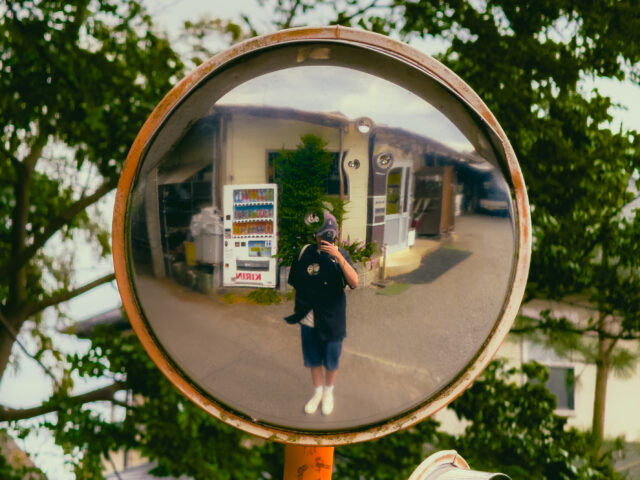I first wanted to learn Korean after my interest in the popular Korean music group BTS developed. I was conflicted because it seemed so difficult, and I didn’t even know when I would use it. Regardless, the urge persisted, and I came across YouTuber Ikenna whose videos inspired me with the notion that if I wanted to learn a language, then I could.
Full of inspiration, I attempted to learn on my own the summer before my senior year of high school. While I got the basics down, my methods were ineffective, so I decided to postpone my Korean studies until I could take structured classes in college.
Due to COVID-19, my first year of college was online which made Korean classes especially difficult. The professor worked hard to make it an effective class, despite the challenges of assessing pronunciation and facilitating natural conversation through a grainy Zoom feed. Korean was always my hardest class. It came with outside tutoring, workbook assignments, and constant new grammar and vocabulary to practice and memorize. Though it was challenging, these classes pushed me to practice and improve my skills which I am grateful for. After taking Beginning Korean 1 and 2 and Intermediate Korean 1 and 2, I decided to go to Korea to learn more and practice what I’ve learned. I knew I wanted to study abroad while in college, so this felt like a natural advancement to me.
After coming to Korea, I quickly realized that I learned very textbook-style Korean, which makes sense considering that I learned from textbooks. I could say ‘because’ in at least 10 different ways, but I didn’t know how to ask to split a bill or ask for takeout.
My Korean class at Korea University is very different from my classes at my home university. It is not as intensive as the classes I was used to. There is no homework, essential tutoring sessions, or weekly vocab quizzes. However, the expectation to be prepared and study individually is much higher, and the class itself is taught in Korean which was an adjustment as well. This is consistent with my other classes at Korea University where there isn’t homework, but you are expected to study your notes and come to class prepared. Being in Korea and immersed in the language comes with a constant reminder that I still have so much to learn. So, while I am improving at a faster rate than back home, my learning doesn’t feel as satiable as it once did.

Trying to make the most of my time studying abroad, I struggled to balance time to study and time to hang out with friends and explore. There’s an endless amount of Korean to study and I want to take it seriously and put in as much effort as I can, but I don’t want to be locked up at a desk studying for my entire time in Korea. So, I try my best to create a balance between the textbooks and the language being spoken all around me and find fun and interesting ways to improve my fluency.
For example, I signed up for a language exchange partner program through my host university where people sign up and are matched with each other to be language exchange partners. This program is beneficial for individual practice and niche questions that Google might not be able to explain well. My partner is very supportive and helpful, and I have fun helping her with English too. There are other bigger language exchange groups that people can join, but I find one-on-one conversations to be the most beneficial. I also enjoy practicing Korean with other Korean learners because we talk in more simple sentences so it’s easier and more casual, though no one is correcting our mistakes.
Another way I like to practice with my friends is by going to norebang (노래방), which are small karaoke rooms where you can sing with your friends. Some Korean songs with raps are really hard to sing, but ballads tend to be slower and easier. The more I go, the easier the songs get. It’s also really satisfying to be able to somewhat understand the lyrics as I read them. Some of my favorite Korean norebang songs are “Only You” by Huh Gak, “Eyes, Nose, Lips” by TAEYANG, and many Day6 songs but especially “I Loved You,” “I Smile,” and “Days Gone By.” Some norebangs are called coin norebangs which only have kiosks that are easy and stress-free to use. There are also songs available in English and other languages so there is something for everyone.

Lastly, I bought one of my favorite books in Korean. It’s originally a manga or Japanese comic book, so it has pictures and I already know the storyline well which makes it easier for me to read. I like it because I can write translations directly in the book and review it when I read over the story again.
I still have the rest of my life to get better at Korean, so I want to enjoy learning as much as I can. Living in Korea has made me a lot more comfortable with the language and I feel more confident about using it in just the three months that I’ve been here. I have given Korean my best effort that I could while managing my other life commitments and classes related to my major. It’s very rewarding to see what I can accomplish when I diligently commit to something and that inspires me to attempt other pursuits that I’m interested in too. I look forward to further improving my Korean over the years and possibly coming back to Korea to become more advanced too.
Adrienne Povey, University of Massachusetts Amherst, is studying abroad in South Korea with TEAN.







